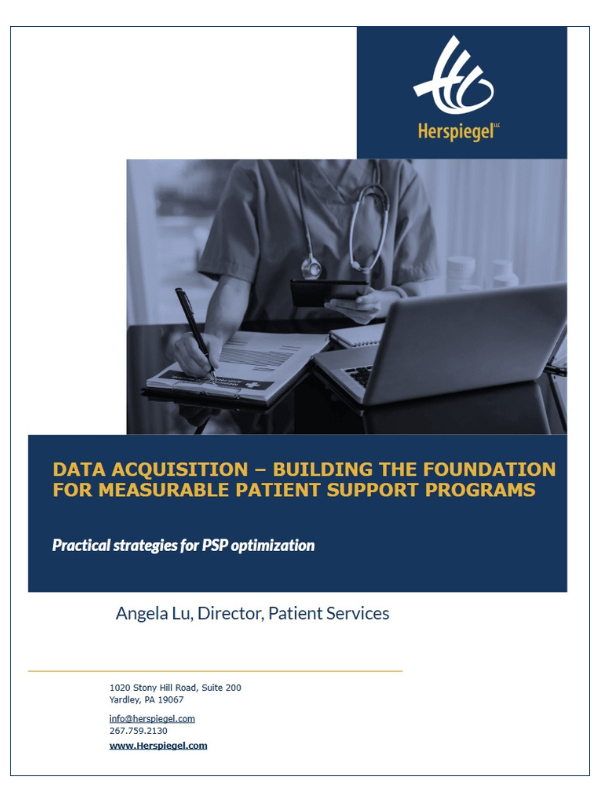Building the Foundation for Measurable Patient Support Programs - Data Acquisition
Patient Support Programs (PSPs) have become essential in bridging the gap between pharmaceutical companies and patients, ensuring access, affordability, and adherence to therapies. However, many programs face challenges in demonstrating their true impact due to fragmented and inconsistent data collection and analysis. Without a clear data strategy, critical decisions may be based on incomplete information, hindering the effectiveness of these programs.
To address these challenges, our latest white paper, Building the Foundation for Measurable Patient Support Programs – Data Acquisition covers how to establish a robust data collection framework that not only measures success but also informs strategic decision-making.
Key insights include:
1. Defining the Right Metrics
Aligning metrics with the core objectives of a Patient Support Programs is crucial. This includes assessing how effectively patients navigate reimbursement and financial assistance hurdles, understanding the extent of financial assistance utilization, monitoring therapy adherence and persistence, and evaluating operational efficiency.
2. Understanding the Four Levels of Analytics
In thinking about what to measure (and therefore what data is needed), Herspiegel recognizes how data feeds into the four levels of analytics, ensuring insights evolve from basic reporting to strategic decision-making.
- Descriptive Analytics: Understanding what happened through standard metrics like patient enrollment rates and therapy adherence rates.
- Diagnostic Analytics: Identifying patterns and drivers behind program outcomes by segmenting data to test hypotheses.
- Predictive Analytics: Leveraging historical data to forecast trends and potential outcomes, such as identifying patients at high risk of discontinuation.
- Prescriptive Analytics: Transforming insights into actionable intelligence to reshape Patient Support Programs strategy and achieve desired patient outcomes.
3. Addressing the Data Challenge
Ensuring that necessary data points are captured involves including analytical partners in conversations about data collection. A well-rounded data strategy should encompass patient-level data, engagement data, operational data, and outcome data. Additionally, regulatory considerations, such as compliance with HIPAA and GDPR, must be factored into data collection strategies to balance the need for insights with patient privacy concerns.
By implementing the best practices, organizations can build more effective, measurable, and patient-centric support programs. To gain a deeper understanding of these strategies and enhance your support program’s effectiveness, download the full white paper: Building the Foundation for Measurable Patient Support Programs – Data Acquisition.

Download the White Paper Now
"*" indicates required fields


